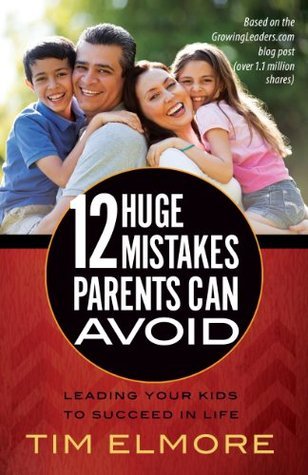What do you think?
Rate this book


242 pages, Kindle Edition
First published July 1, 2014

More reviews (and no fluff) on the blog http://surrealtalvi.wordpress.com/
This is a surprisingly good book packed with very useful and up to date observations on the iY gen child (i for ipad/iphone/etc. and y for Gen Y). Most of the book is focused on parents and the repercussions of how parenting has evolved after the fin de siecle. So while the title sounds very simple the book is anything but simplistic; there is a lot here to really make you think you twice about your parenting. Note, however, that this is a Christian themed book with bible references, quotes, scriptures, etc. Honestly, I wish it wasn't because the information contained herein is very universal and the Christian references will distance non-Christians from some good information. As well, the Christian themes can be removed so the book is universal to all religions in America without impacting the important information/advice/observations within.